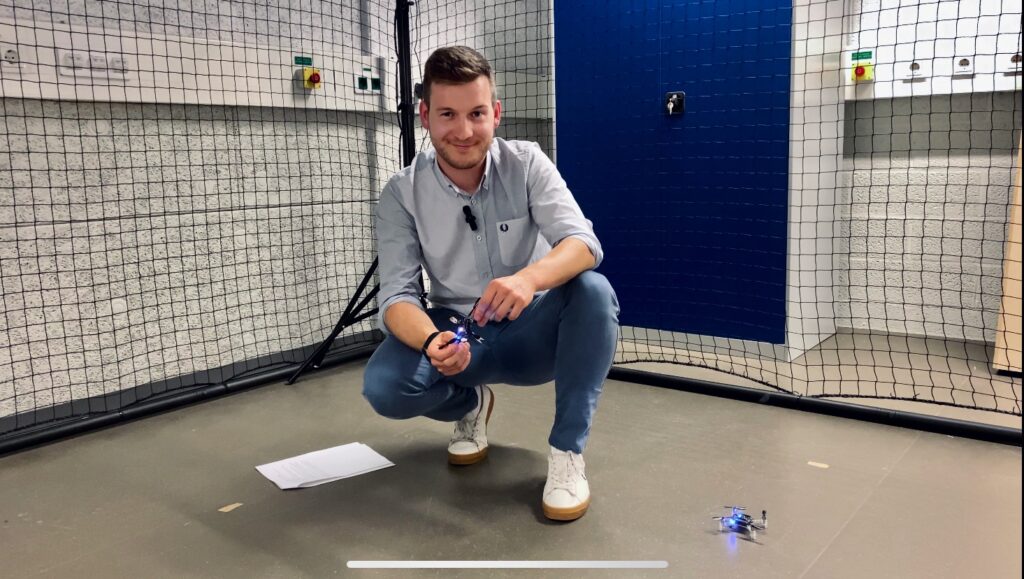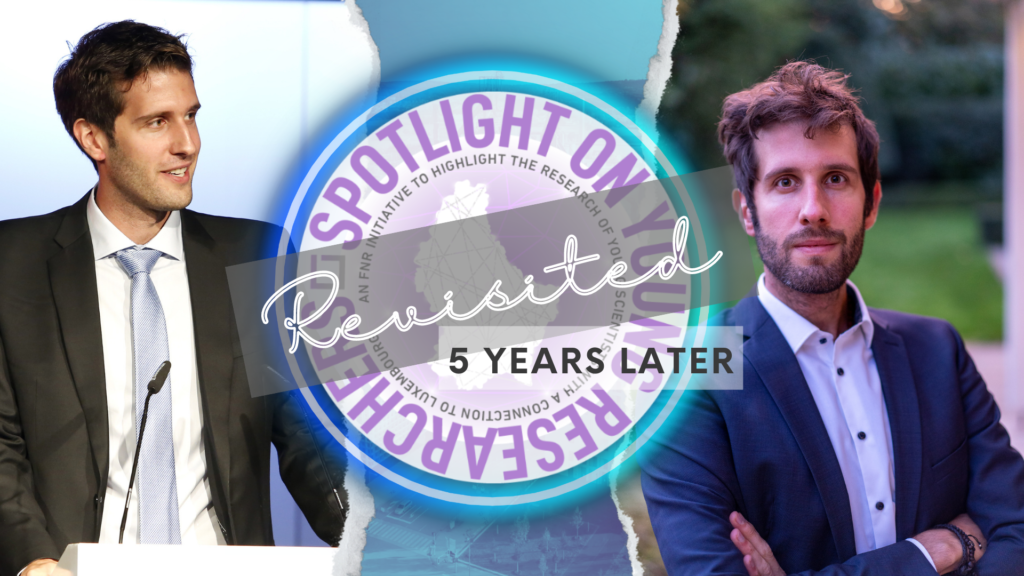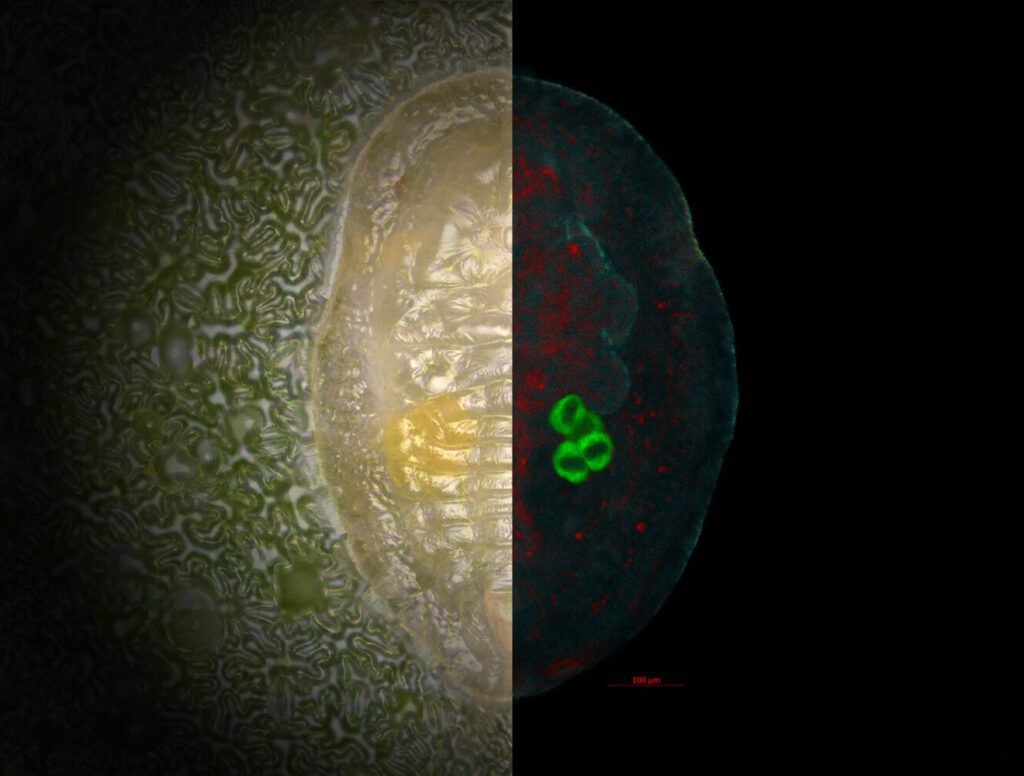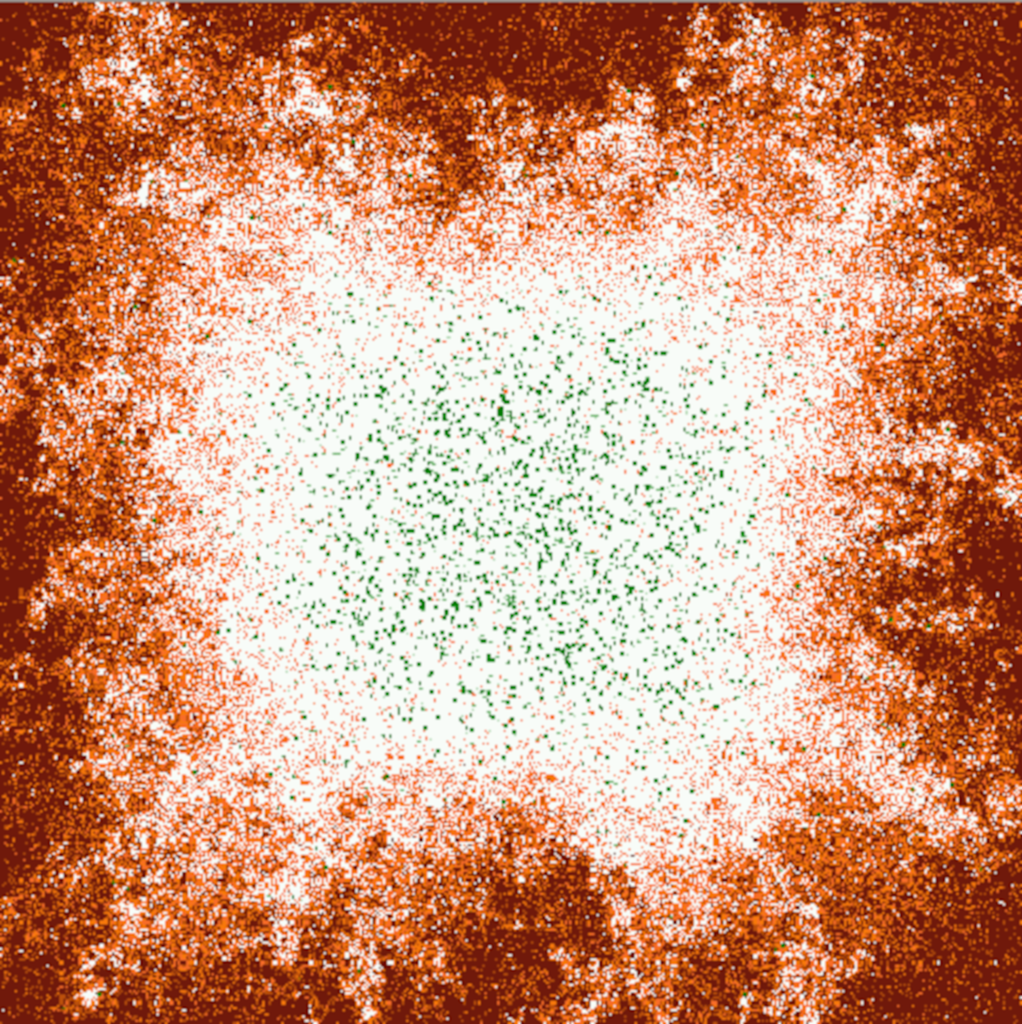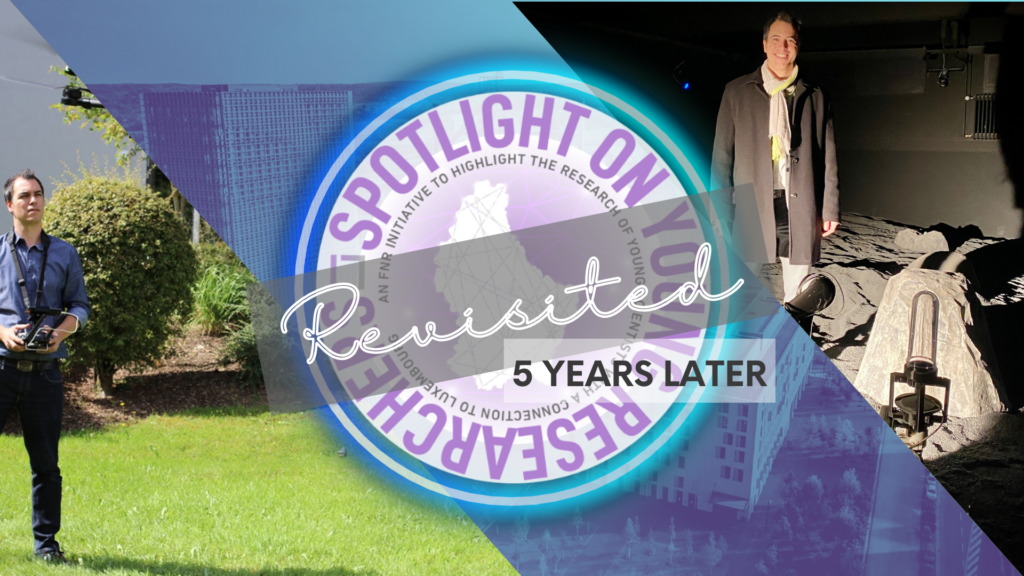December 2016
In 2015, Cyrille Thinnes was featured in our campaign ‘Spotlight on Young Researchers’, which highlighted early-career researchers with a connection to Luxembourg. At the time, Cyrille was at the University of Oxford doing a DPhil (PhD) in chemical biology. One year on, we caught up with Cyrille!
Cyrille’s DPhil (Oxford term for PhD), which was funded by Cancer Research UK, included work on compounds called ‘8-hydroxyquinolines’. One of the compounds deactivates a protein involved in epigenetics and can be used as a tool compound for studies in physiology.
For example, one of the experiments conducted with the compound showed the death of lung cancer cells – but not normal lung cells – from the same patient, upon treatment with Cyrille’s compound, which has also been used by several collaborators for biochemical, biological, and physiological investigations.
8-hydroxyquinolines + UV light = artwork!
“While monitoring one of my reactions in the chemical synthesis lab, I noticed that my product was highly fluorescent under UV light. As I was working on the 8-hydroxyquinolines compounds at that time, I felt inspired to display 8-hydroxyquinoline as fluorescent artwork: I soaked tiny capillary glass tubes with my fluorescent compound, assembled them into the chemical structure of 8-hydroxyquinoline, and switched on the UV bulb!”
Boosting business skills
While working on his DPhil in chemical biology, Cyrille had the invaluable chance to attend Saïd Business School for a one-year course in strategy and innovation, along with the MBA students, which provided him with highly useful skills – and sparked an interest in business as Cyrille explains:
“During this time I started developing and nurturing my interests in management, and business in general.”
One year on – return to Luxembourg!
After completing his DPhil, Cyrille – a Luxembourg national – decided to return to the Grand Duchy, where he in March 2016 took up the role of Science Programme Manager for the NCER Parkinson’s disease study – an ideal role as Cyrille points out:
“Remaining a scientist at heart, my idea of an ‘ideal job’ was to build upon my scientific skills in a biomedical setting, in a management role. And then an advert for ‘Science Programme Manager’ popped up on my radar, a position which I am very fond of having been offered. The fact that this position is based in my home country was somewhat of a ‘cherry on top’.”
More information
- View Cyrille Thinnes’ publication on 8-hydroxyquinolines ‘Betti reaction enables efficient synthesis of 8-hydroxyquinoline inhibitors of 2-oxoglutarate oxygenases’
- Find out more about the NCER Parkinson study




